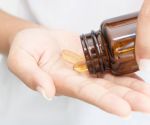Advertisement
It is quite uncommon that a person would have an allergy to niacin; however if your doctor has confirmed it through testing, you may be told to avoid niacin-containing supplements or fortified foods. Most vitamin companies use niacinamide (form of niacin that does not cause flushing) which may be acceptable but you must confirm with your doctor. Otherwise, health food stores do carry multivitamins without niacin.
About niacin: niacin is necessary for good overall health, involved in energy production, helps improve circulation and blocks fats from being broken down, which reduces the amount of fats in circulation. Higher doses (well above the RDA) of niacin have been used successfully to lower bad cholesterol, increase good cholesterol (HDL) and reduce cardiovascular events. Niacin used for these purposes should be monitored by a doctor. Vitamin B3 (niacin) is a naturally occurring substance found in meat, poultry, fish, eggs, and green vegetables.
About niacin: niacin is necessary for good overall health, involved in energy production, helps improve circulation and blocks fats from being broken down, which reduces the amount of fats in circulation. Higher doses (well above the RDA) of niacin have been used successfully to lower bad cholesterol, increase good cholesterol (HDL) and reduce cardiovascular events. Niacin used for these purposes should be monitored by a doctor. Vitamin B3 (niacin) is a naturally occurring substance found in meat, poultry, fish, eggs, and green vegetables.
Continue Learning about Vitamins
Important: This content reflects information from various individuals and organizations and may offer alternative or opposing points of view. It should not be used for medical advice, diagnosis or treatment. As always, you should consult with your healthcare provider about your specific health needs.






